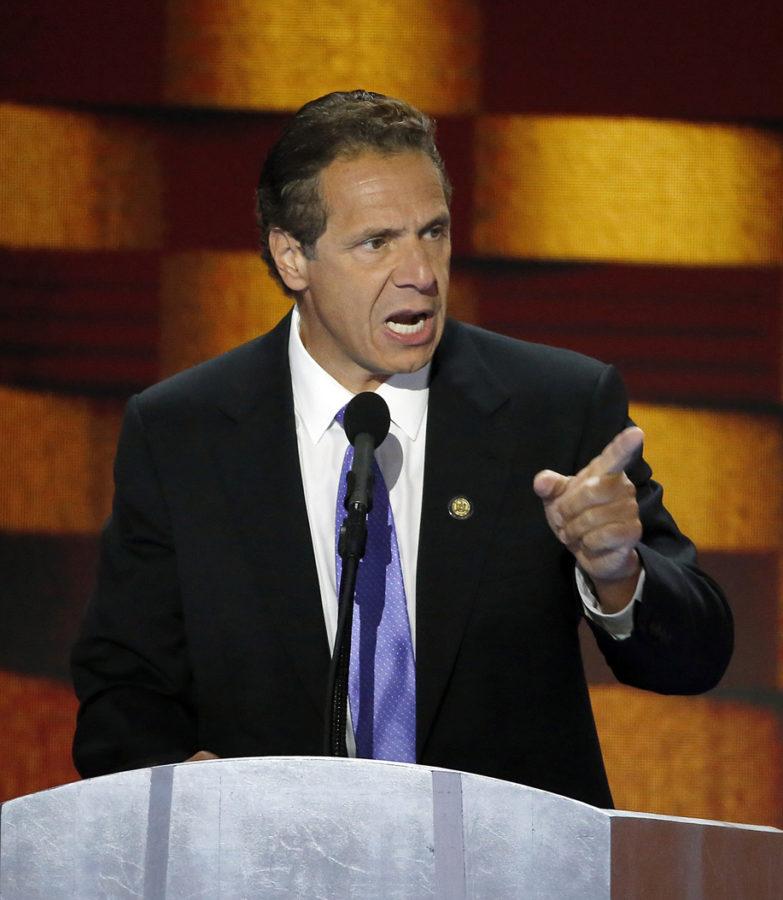For college students disappointed by the Democrats’ defeat last November, a bill passed last week in New York is a refreshing — but ultimately empty — development in the discussion surrounding free tuition.
Gov. Andrew Cuomo, D-N.Y., signed a bill as a part of the state’s budget last Wednesday with a significant new budget line — the Excelsior Scholarship. The scholarship, which will be available for all residents of the state of New York making less than $100,000 per year starting in the 2017-2018 academic year, functions more or less as a measure to make attendance at the state’s public school systems tuition-free. By 2019, this benefit will increase to cover state residents making up to $125,000.
The bill’s high-profile supporters include Sen. Bernie Sanders, I-Vt., and former Democratic presidential candidate Hillary Clinton, both of whom were strong higher education reformists last year. And while the program represents a significant move in the right direction for higher education’s future — no lawmaker in Pennsylvania has proposed anything similar since 2013 — New York’s plan fails to make college truly accessible and is insufficient as a model for the country.
Chief among the problems of transposing Cuomo’s bill to the rest of the country is one of its more controversial features — the Excelsior Scholarship requires recipients to work in the state for at least as many years as they attend school in the New York system. If a recipient leaves New York state after graduation, the state reverts the grant into a loan.
“Why should New Yorkers pay for your college education, and then you take off and you move to California?” Cuomo said to the New York Times Tuesday, defending the measure. “The concept of investing in you and your education is that you’re going to stay here and be an asset to the state.”
Critics of the bill, including Sara Goldrick-Rab, a professor of higher education at Temple University, say the requirement that graduates of four-year institutions remain in the state four years is equivalent to “extortion” and “indentured servitude.” Goldrick-Rab also pointed out on Twitter that New York, as a state with one of the highest average costs of living in the country, is an unaffordable choice for low-income students who graduate with the help of the scholarship program. Other states, including Pennsylvania, that have cost-of-living indexes higher than the national average, would face the same problem as New York.
The in-state work requirement forces high school seniors to make a plan for the next eight years of their lives, assuming they go to school for four years and are then required to stay in state the next four. This is also something that would be difficult or even impossible to recreate in states with smaller job markets.
Another target for critics of the bill was its requirement that recipients take at least 30 credits of classes per year to qualify for scholarship coverage. Commentators, including former SUNY Chancellor D. Bruce Johnstone, noted the requirement that students be full-time would likely limit the amount of aid given to lower-income students who work part-time and study part-time — presumably those who would need the most help.
“[The bill] will help a slice of middle-class students, but it’s only a slice,” Johnstone said to the New York Times Tuesday. “I don’t see it moving the accessibility needle.”
While New York’s scholarship program was likely passed with good intentions and is undoubtedly a step in the right direction, it’s questionable how much the bill actually does to improve issues surrounding inaccessibly expensive higher education. Other states considering following New York’s lead should take note of the Excelsior Scholarship program’s drawbacks and work to ensure that students of every social and economic background can attend public college.


